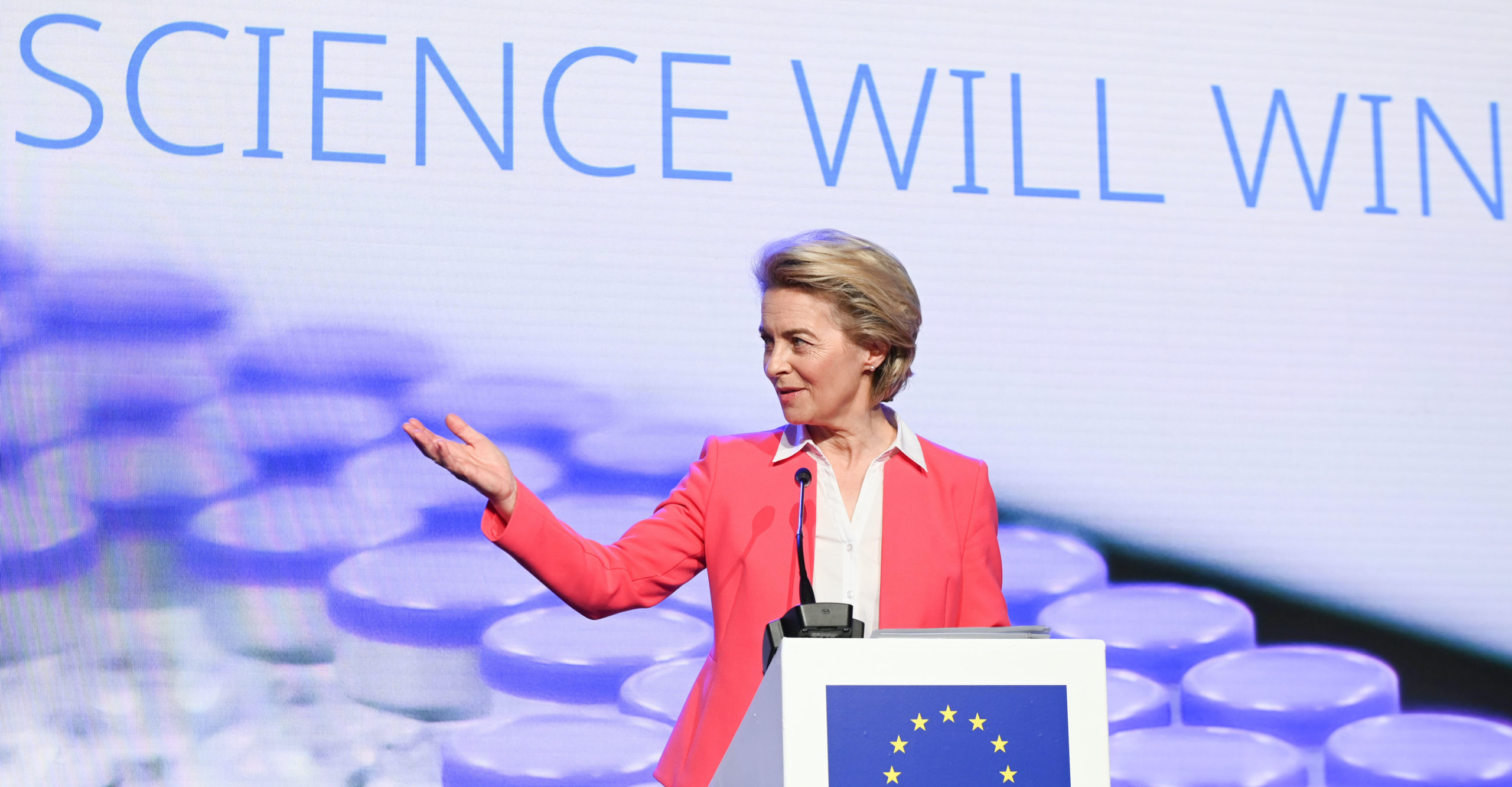The New York Times is taking the European Commission to court over Ursula von der Leyen’s refusal to release the text messages she exchanged with Pfizer CEO Albert Bourla, in which she personally negotiated the purchase of up to 1.8 billion doses of the BioNTech/Pfizer vaccine. This is the latest episode in an ongoing saga which paints the EU in an extremely bad light. Here’s what we know so far.
Shortly after the signing of the deal in April 2021 — the bloc’s biggest yet, worth a staggering €35 billion (tens of billions of euros above the cost of production, according to one analysis) — the New York Times reported that von der Leyen had single-handedly negotiated it via a series of text messages and calls with Bourla. At that point Alexander Fanta, a journalist at the German news site netzpolitik.org, wrote to the Commission asking to access the text messages and other documents relating to the exchange between von der Leyen and Bourla. The Commission claimed no such documents existed.
Baffled by the response, Fanta made a formal complaint to the European Ombudsman, Emily O’Reilly. In January 2022, the Ombudsman published the result of her investigation, which found that the Commission hadn’t even asked von der Leyen’s office to search for text messages, despite Fanta specifically requesting them. Instead, it asked for items that met the Commission’s criteria for recording “documents” — a definition that does not include text messages. To address this, O’Reilly made a recommendation that the Commission ask von der Leyen’s office to search again for relevant text messages, but the Commission refused to comply.
The EU’s Values and Transparency Commissioner Věra Jourová later claimed that the text messages may have been deleted, due to their “short-lived, ephemeral nature” and defended the Commission’s right not to keep records of the texts in view of the fact that “text and instant messages in general do not contain important information relating to policies, activities and decisions of the Commission, nor are they in the possession of the institution”. As Fanta commented on Twitter, the explanation made little sense: “An increasing amount of modern communication happens via text. Including important stuff, EU summit diplomacy, climate negotiations, etc. Should all this be obliterated from public record and historical archives?”
As time went by, other EU bodies got involved — but the stonewalling continued. In September of last year, the plot thickened after the European Court of Auditors published a report, accusing the Commission of refusing to disclose any details of von der Leyen’s personal role in the talks. This prompted the European Public Prosecutor’s Office (EPPO), an independent EU body responsible for investigating and prosecuting financial crimes, including fraud, money laundering and corruption, to open an investigation — still ongoing — into the whole EU Covid vaccine procurement process.
It remains to be seen whether the EPPO’s investigation and the New York Times lawsuit will succeed where all others have failed. But one thing is clear: it’s hard to imagine a more telling example of the EU’s complete lack of transparency, disregard for democracy and unsavoury cosiness with big business — and of the cronyism and corruption that has characterised the entire Covid management, and the vaccine rollout in particular — than a Commission president personally making a deal worth tens of billions of euros with a Big Pharma CEO. Then add to that the refusal to disclose the texts in question, or even the contracts related to the purchase, despite multiple requests by some of the highest EU bodies. Bourla himself has repeatedly refused to testify before the European Parliament’s special Covid committee. What are they so afraid of?











Join the discussion
Join like minded readers that support our journalism by becoming a paid subscriber
To join the discussion in the comments, become a paid subscriber.
Join like minded readers that support our journalism, read unlimited articles and enjoy other subscriber-only benefits.
Subscribe